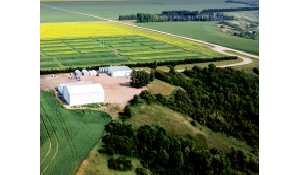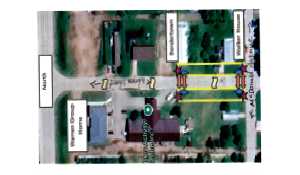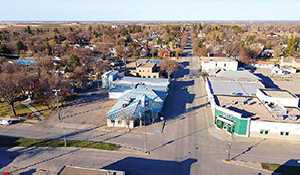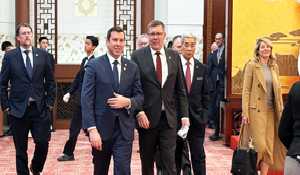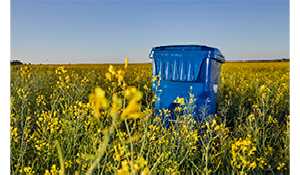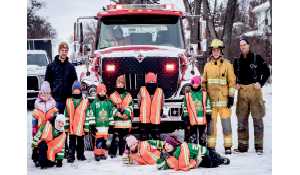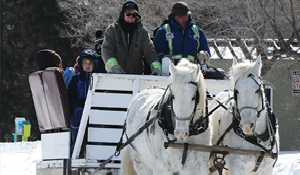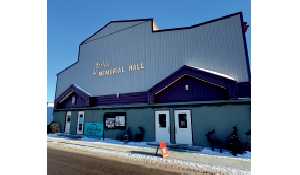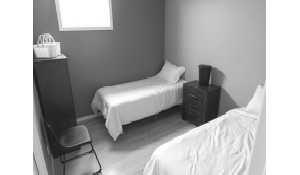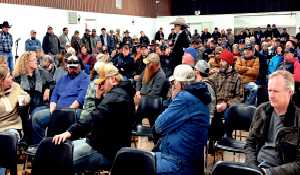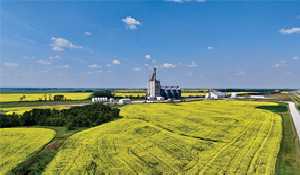Your tax dollars hard at work
March 5, 2018, 4:13 pm

The interesting thing about budgets is always the small details. You hear the big changes from government budgets, such as the federal budget unveiled on Tuesday. The interesting parts are in the details, however.
$81.4 million for redress system for no-fly list
The budget proposes $81.4-million over five years to create a redress system for Canadians whose names falsely match those on the no-fly list. Parents of children targeted by the no-fly list because they have the same names as known terrorists have been advocating for a redress system for more than two years. They are hoping the system will give wrongly flagged Canadians a redress number so they no longer face delays at airports.
The database in question has between 500 and 2,000 names on it, so at it’s largest possible size it’s half the size of my subscription database.
We need a database to keep track of our subscribers, our advertisers, and other aspects of our business. One special section such as the Christmas issue, the minor hockey issue, or the “I Do Business Locally” issue can have 150 to 200 advertisers listed with all of the pertinent information needed for their ad.
To add a field to such a database, to adjust how a database works—such as having it add up all of the reported donations from businesses for the I Do Business Locally section—is a two minute job.
The problem of children being falsely flagged by the no-fly-list database could be easily solved in many ways without spending $81.4 million.
1) Since the database includes the name and age of suspected terrorists, if the government simply changed the direction to airlines to require extra screening if the name of a traveller matches the name of someone on the database, to instead require extra screening if the name and age of a traveller match the name and age of someone on the database, the six-year-old with the same name as a terrorist will never again be pulled aside for extra screening. Problem solved. No cost. $84 million savings.
2) Add a field for notes in the database, so it can be noted that the five-year-old from Edmonton isn’t the terrorist. Problem solved. Two minutes work. $81.4 million saved.
3) Offer to pay for the costs of changing children’s names for those affected. If my child’s name was on a terrorist watch list, I would be less concerned with having a five minute delay going through security when they’re six than them being on an international list when they’re travelling alone internationally at 21. If my children’s names matched a terrorist on a watch list, I would legally change their name. Problem solved. Some costs for the government to foot the cost of changing the names of the handful of people affected. Problem solved. $81.3999 million saved.
I raised this issue with Andrew Scheer on Friday afternoon and hope the Conservative opposition can figure out how this money is being spent.
$62.5 million to tell people pot is dangerous once it’s legal
With legalization of cannabis set for late summer, Ottawa is spending another $62.5-million on public education campaigns on the dangers of drug use and $10-million on research, including assessing the impact of legalization on mental health. The new funding for public education—on top of a previously announced investment of $46-million—will targeted communities at risk and Indigenous organizations.
$6 million to figure out a better way to do leaders’ debates
The budget included vague details on improving federal election leaders’ debates. The government claims “the way leaders’ debates have been negotiated have put at risk the structure and potential usefulness of leaders’ debates.” It proposed providing $6-million over two years, repeated every election cycle, to “support a new process that would ensure that federal leaders’ debates are organized in the public interest.” The budget also floated the possibility of legislation on this matter.
I might be very stupid, but I’ve always thought leaders debates have been handled perfectly well by the media and the parties. Why the government would want to get involved is far beyond me.
And if they just want to find a better way to do leaders’ debates, couldn’t they take their smartest civil servant, have him or her think on the issue for a full six months, and come up with recommendations, at a cost of $70,000 instead of $6 million?
$594 on the G7 leaders’ summit
Canada is planning to spend $594-million on its 2018 presidency of the G7 and the corresponding leaders’ summit it will host in Charlevoix, Que. this June, according to the budget. The funding will also cover security and logistics for other high-profile G7 ministerial meetings across Canada throughout 2018.
$594 million. It doesn’t sound like that much after reading through the budget and seeing massive number after massive number.
But we’re talking about more than half a billion dollars.
To. Host. A. Meeting.
Total cost of the Saskatchewan Children’s Hospital, meanwhile is $285 million, less than half the cost.


